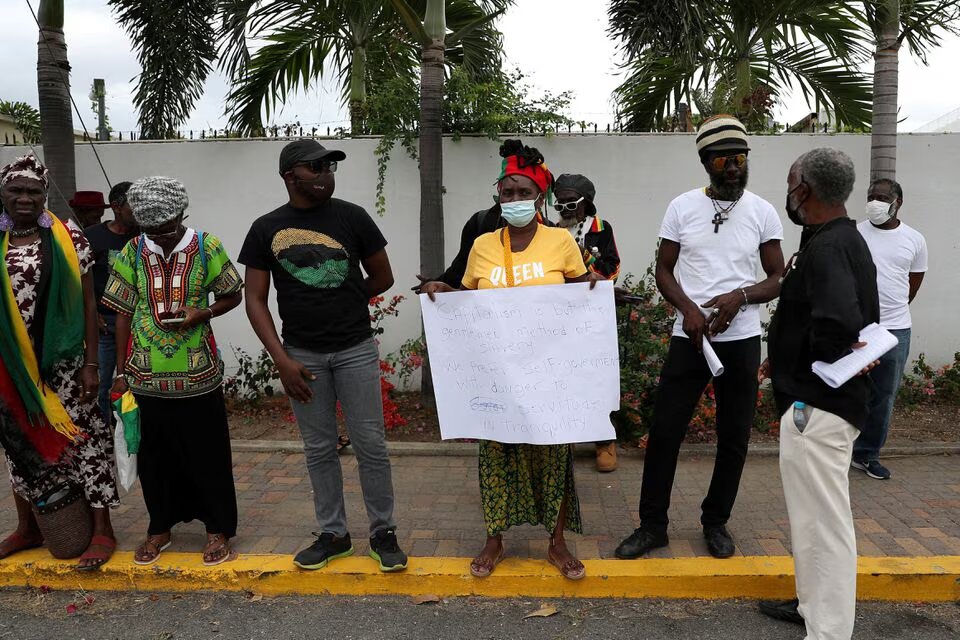GENEVA (Reuters) — The United Nations said this week countries could consider financial reparations among the measures to compensate for the enslavement of people of African descent, though legal claims are complicated by the time passed and the difficulty in identifying perpetrators and victims.
A report of UN Secretary-General Antonio Guterres said no country had comprehensively accounted for the past and addressed the contemporary legacy of the violent uprooting of an estimated 25 million to 30 million people from Africa over more than 400 years.
“Under international human rights law, compensation for any economically assessable damage, as appropriate and proportional to the gravity of the violation and the circumstances of each case, may also constitute a form of reparations,” the report said.
A protester holds a sign during a rally to demand that the United Kingdom make reparations for slavery, ahead of a visit to Jamaica by the Duke and Duchess of Cambridge as part of their tour of the Caribbean, outside the British High Commission, in Kingston, Jamaica March 22, 2022. REUTERS/Gilbert Bellamy/File Photo
“In the context of historical wrongs and harms suffered as a result of colonialism and enslavement, the assessment of the economic damage can be extremely difficult owing to the length of time passed and the difficulty of identifying the perpetrators and victims.”
The report stressed, however, that the difficulty in making a legal claim to compensation “cannot be the basis for nullifying the existence of underlying legal obligations”.
The notion of paying reparations or making other amends for slavery has a long history but the movement has recently gained momentum worldwide amid growing demands from African and Caribbean countries.
The EU said in July that Europe’s slave-trading past inflicted “untold suffering” on millions of people and hinted at the need for reparations for what it described as a “crime against humanity.”
The report concluded that states should consider a “plurality of measures” to address the legacies of enslavement and colonialism, including pursuing justice and reparations, and contributing to reconciliation.
Reporting by Gabrielle Tétrault-Farber; Editing by Richard Chang
Our Standards: The Thomson Reuters Trust Principles.

